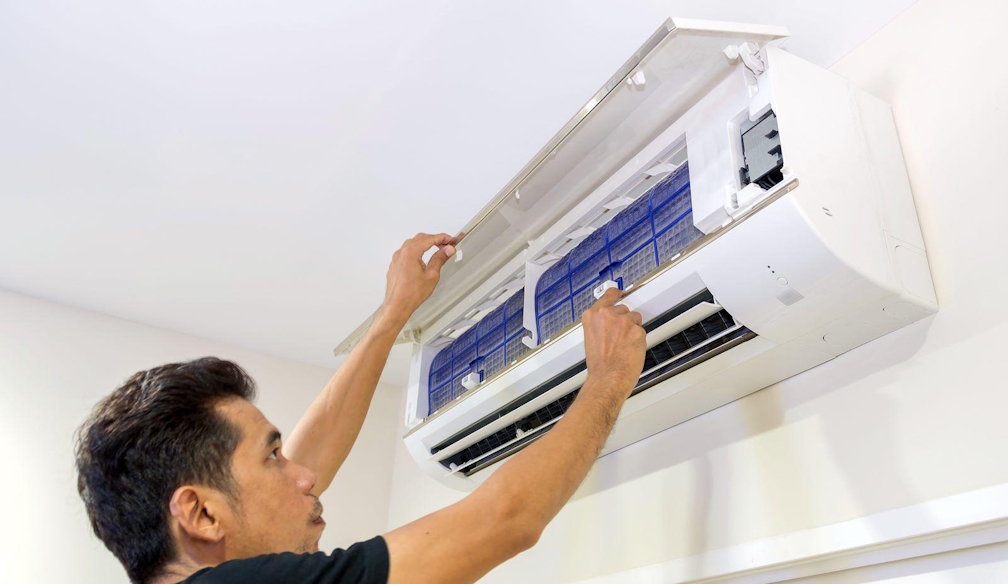The A-to-Z Guide On How Pest Control Works

Pest control is an essential aspect of maintaining a healthy and comfortable living or working environment. Whether you're dealing with insects, rodents, or other unwanted creatures, effective pest control ensures the safety and well-being of your family, pets, and property. In this comprehensive guide, we'll explore the fascinating world of pest control, exploring the various methods, techniques, and considerations that make it work.
Understanding the Pests
Before diving into local bird control methods, it's crucial to identify the specific pests you're dealing with. Different pests require different approaches for effective control. Common household pests include:
- Insects: This category includes ants, cockroaches, bedbugs, termites, and flies.
- Rodents: Mice and rats are the most prevalent rodent pests.
- Wildlife: Squirrels, raccoons, and skunks can become unwanted guests in your home.
- Birds: Pigeons, sparrows, and seagulls often pose problems in urban areas.
- Nuisance wildlife: Creatures like bats and opossums can also cause issues.
Assessment and Inspection
Once you've identified the pests, the next step is to assess the extent of the infestation. A thorough inspection of your property is essential to determine the scope of the problem. Professionals from local bird control may look for signs such as droppings, nests, gnaw marks, and entry points. This assessment helps in devising an effective pest control plan tailored to your specific situation.
Preventive Measures
Preventing pests from entering your home or business in the first place is always the best approach. Here are some preventive measures you can take:
- Seal entry points: Ensure that cracks, gaps, and openings in your property's structure are sealed to prevent pests from gaining access.
- Proper waste management: Dispose of garbage and food waste in sealed containers to minimize attraction for pests.
- Maintain cleanliness: Regularly clean and declutter your space to eliminate hiding spots for pests.
- Yard maintenance: Trim overgrown vegetation and trees, as they can serve as bridges for pests to access your property.
Non-Chemical Pest Control Methods
For those who prefer environmentally friendly or non-chemical pest control methods, several options are available:
- Traps: Various types of traps, such as snap traps for rodents and sticky traps for insects, can be used to capture pests.
- Biological control: Introducing natural predators of pests, like ladybugs for aphid control, can help maintain a balanced ecosystem.
- Physical barriers: Installing screens, nets, and other physical barriers can prevent pests from entering specific areas.
Chemical Pest Control
When infestations are severe or non-chemical methods aren't sufficient, chemical pest control comes into play. Here are the main categories of chemical pest control:
- Insecticides: These are chemicals designed to kill or repel insects. They come in various forms, including sprays, dusts, and baits. Insecticides can be classified as contact, systemic, or residual based on their mode of action.
- Rodenticides: These are poisons used to control rodent populations. Extreme caution should be exercised when using rodenticides to prevent accidental ingestion by pets or children.
- Herbicides: While primarily used for weed control, herbicides can also be employed to manage vegetation that attracts pests or serves as their habitat.
- Fungicides: These chemicals are used to control fungal diseases that may attract insects or other pests.
Professional Pest Control Services
While DIY pest control methods can be effective for minor infestations, more serious problems often require the expertise of professional pest control services. Here's how these services work:
- Inspection and assessment: Professionals conduct a thorough inspection to identify the type and extent of the infestation.
- Customized treatment plan: Based on the assessment, they create a tailored pest control plan, including the selection of appropriate chemicals and methods.
- Application: Pest control professionals apply the chosen treatments safely and effectively, following industry guidelines and safety protocols.
- Follow-up visits: Ongoing monitoring and follow-up visits may be necessary to ensure the infestation is completely eradicated.
Integrated Pest Management (IPM)
Integrated Pest Management is a holistic approach to pest control that emphasizes prevention and minimizes the use of chemicals. It combines various strategies to manage pests effectively while minimizing environmental impact. Key components of IPM include:
- Monitoring: Regularly inspecting for pests and their signs.
- Prevention: Implementing preventive measures to reduce pest access and attraction.
- Biological control: Using natural predators and parasites to control pest populations.
- Chemical control as a last resort: Only using chemicals when other methods are insufficient.
- Evaluation: Continuously assessing the effectiveness of pest control measures and adjusting strategies as needed.
Safety Considerations
Safety is a top priority when it comes to pest control, whether you're handling it yourself or hiring professionals. Here are some safety considerations:
- Protective gear: When using chemicals, wear appropriate protective gear, including gloves, masks, and goggles.
- Read labels: Always follow the instructions on pesticide labels, including dosage, application methods, and safety precautions.
- Keep children and pets away: Ensure that children and pets are kept away from treated areas until it's safe.
- Proper storage: Store pesticides and other pest control products in a secure location, away from children and pets.
Conclusion
Pest control is a multifaceted process that involves identification, assessment, prevention, and intervention. Whether you're dealing with insects, rodents, or wildlife, understanding the specific pests and employing the right methods is essential for effective pest management. Whether you choose non-chemical or chemical methods, always prioritize safety and consider seeking professional help for severe infestations. By implementing a comprehensive pest control plan, you can protect your home, health, and peace of mind.



